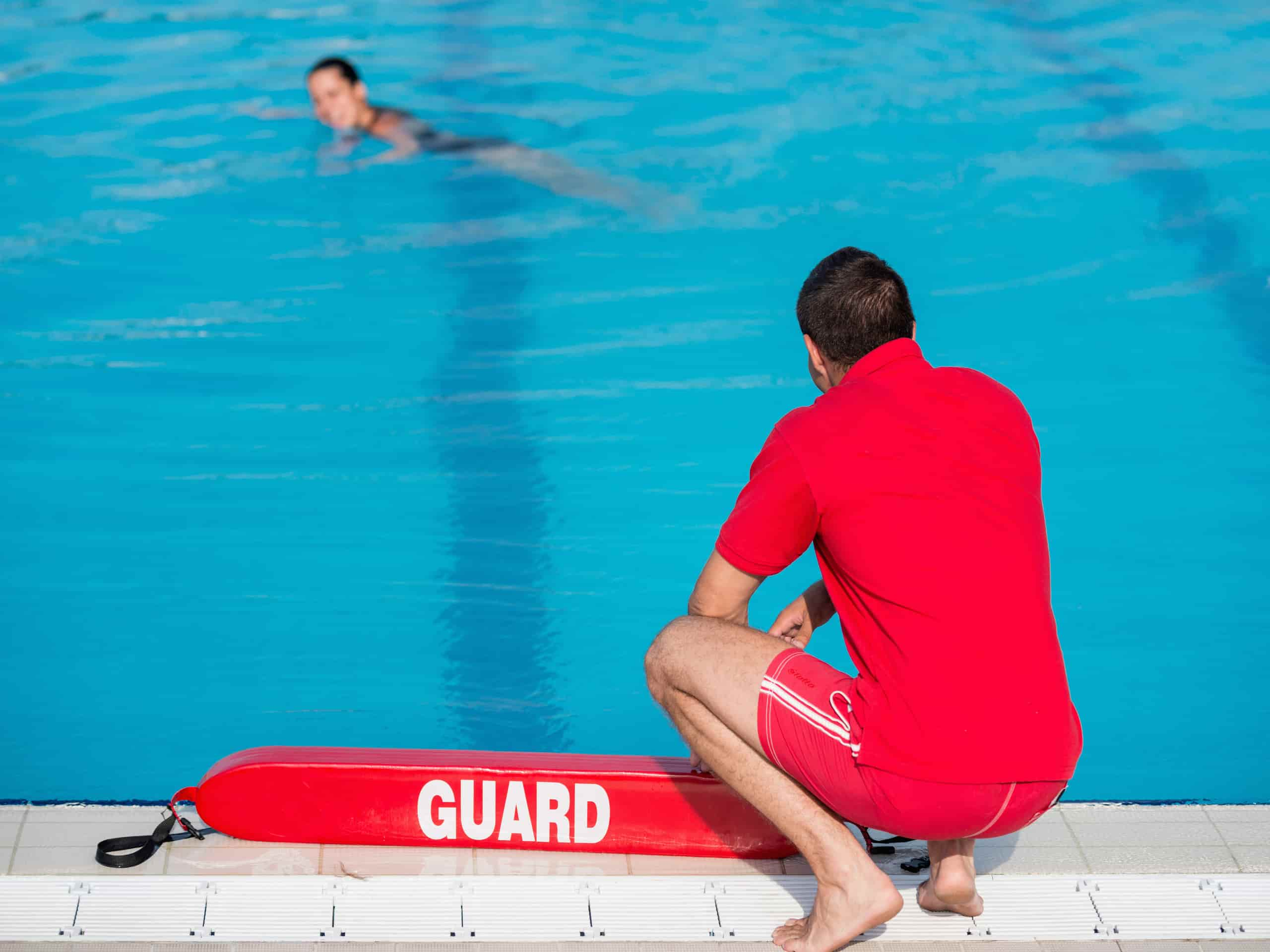
Lifeguards in the Gulf region face several unique challenges compared to those in other parts of the world. The environment is harsh, with temperatures exceeding 49°C in the summer months and long working days that can put any lifeguard under pressure. Add to this incorrect onboarding, a lack of in-service training, and no emergency action or normal operation plans in place, and the situation worsens.
Sometimes, there is only one lifeguard on the poolside with no rescue equipment, no AED machine, and no way to call for help or backup in an emergency. Their only device is a personal mobile phone, often left charging in the bathroom and serving as a constant distraction while people are swimming. All these factors combined set lifeguards in the region up to fail.
It’s not all doom and gloom. I have to give credit to the many waterparks, hotels and resorts, facility management companies, and swimming pool operators who do a fantastic job, setting their lifeguards up to succeed and giving them 100% support by following best practices (you know who you are after reading this blog). However, the majority of lifeguard service providers and swimming pool operators still fall at the first hurdle.
There are official documents in place to support and guide these companies on best practices:
The Dubai Municipality Health & Safety Department has recently updated its Lifeguard Scheme Requirements. This document has truly laid the foundation for better standards in the region.
And to support lifeguards while on duty. The Dubai Municipality Health & Safety Department has the Public Swimming Pools Safety Guidelines.
Before I talk about introducing AI to your swimming pool to support lifeguards, there are some absolute basics that must be in place.
- Correct Recruitment Process
Before hiring a lifeguard, make sure they can actually swim. I’ve lost count of how many lifeguards we’ve turned away from training courses because they couldn’t swim more than 10 meters. Companies end up losing onboarding fees, deployment revenue, and time due to this oversight. - Selecting the Right Training Provider
There are many training providers to choose from, so ensure they hold the correct approvals and credentials. If they offer to train and certify your new lifeguards in just three days, be very cautious. The right training provider will also let you know if your new hire can swim or not ☺ - Onboarding and Site-Specific Training
Every swimming pool is unique and presents its own challenges. Make sure your lifeguards spend at least one day familiarizing themselves with the site and learning the site-specific Emergency Action Plan (EAP), which guides them on what to do in an emergency. They also need to understand the site-specific Normal Operation Plan (NOP), which supports them in their day-to-day duties and responsibilities. Avoid deploying them immediately without this preparation. - In-Service Training
The Dubai Municipality Health & Safety Department now mandates that all lifeguards must complete a minimum of four hours of in-service training per month. Unfortunately, many lifeguards don’t do any updates or training until they renew their licenses after two years. These four hours each month ensure lifeguards stay current, keep their skills sharp, and are ready to prevent potential drownings.
Now for the exciting part: How Can AI Support Your Lifeguards?
Technological developments are moving at incredible speed, and they’ve finally entered the realm of water safety. Introducing AI support at your swimming pool offers immediate benefits:
- Real-Time Alerts
If a swimmer is in distress or submerged underwater, lifeguards receive a real-time alert, enabling them to act immediately. - No Blind Spots
With AI cameras, the entire swimming pool is covered. This is especially useful when there is only one lifeguard on duty, as it eliminates the blind spots a single lifeguard might miss. - 24/7 Surveillance
AI cameras are unaffected by extreme temperatures or long working hours. They can monitor the pool continuously, without needing breaks. - No Distractions
AI cameras don’t get distracted by mobile phones or conversations with guests.
With AI cameras in place, lifeguards can focus on their core responsibility: preventing drownings. At the same time, AI helps keep lifeguards alert and assists management in maintaining consistent oversight while they’re on duty.
This is an incredibly exciting time in the water safety space. If you’d like to learn more about how AI can support your lifeguards and overall swimming pool operations, please get in touch with us.

